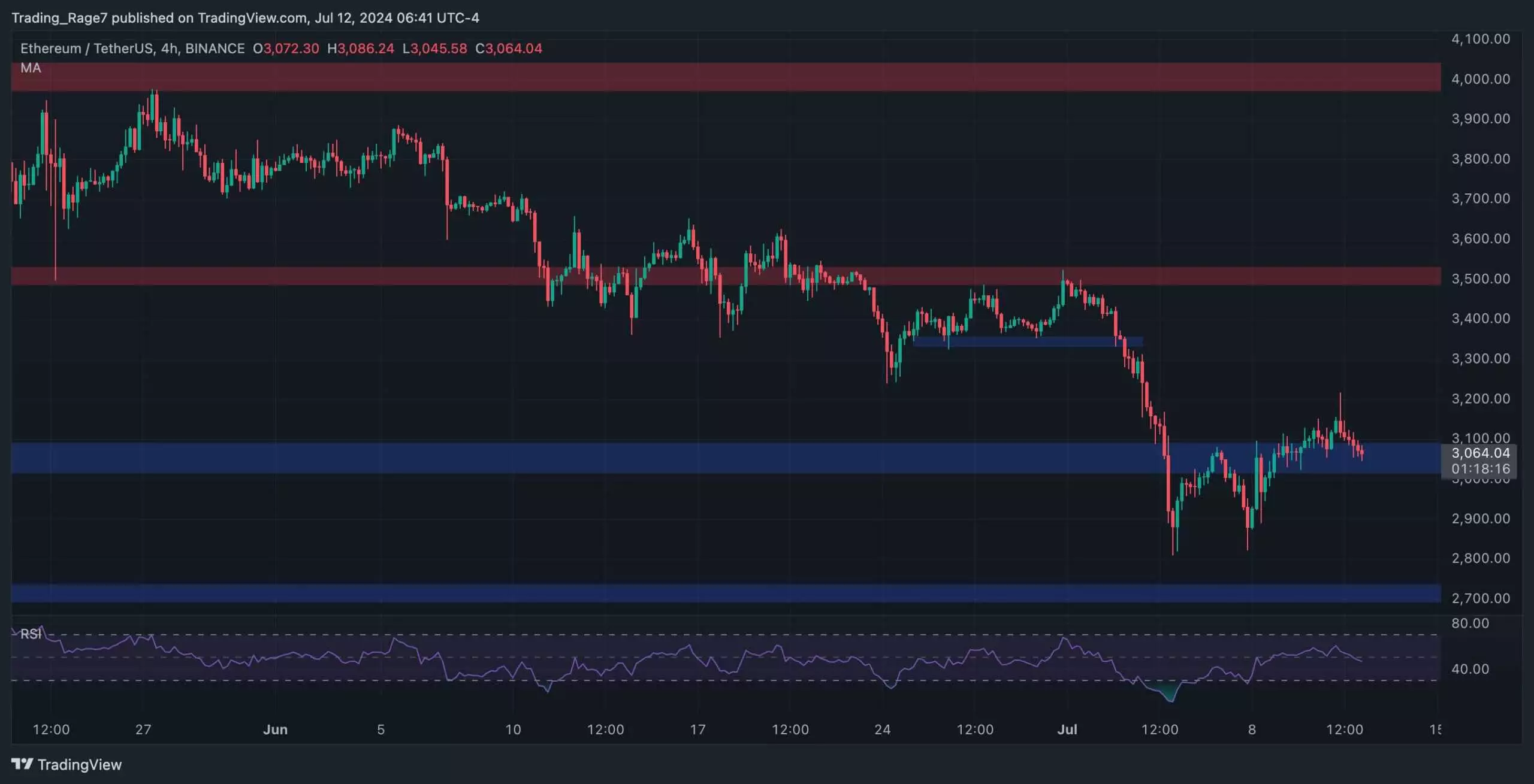Ethereum’s price has recently experienced a decline after facing rejection at the $4,000 resistance level for the second time. The daily chart reflects a pattern of lower highs and lows since failing to break through the $4,000 level. Additionally, the market has broken below the 200-day moving average, hovering around the $3,100 mark. Currently, the price is undergoing a retest of the 200-day moving average, but signs indicate a potential rejection to the downside. Consequently, there is a likelihood that the cryptocurrency could drop towards the $2,700 support level in the near future.
Short-term Price Analysis
A closer look at the 4-hour chart reveals a more detailed perspective of the recent price action. The market’s downtrend has intensified, with a brief dip below the $3,000 support level. Subsequently, an oversold signal by the RSI prompted a price recovery above this support zone. However, the prevailing lack of momentum suggests that the price may struggle to sustain an upward trend and could potentially experience a more significant decline towards the $2,700 region.
Capitulation Signals
Throughout Ethereum’s recent downtrend, analysts have been on the lookout for signals of capitulation that could indicate a potential market bottom. One such metric is the Ethereum Exchange Reserve, which measures the amount of ETH held in exchange wallets. An increase in this metric indicates potential selling pressure, while a decrease signals a reduction in supply. Following the brief drop below $3,000, the exchange reserve metric has risen above its 30-day moving average. This uptick may signify the beginning of a capitulation phase, as many investors’ stop losses were likely placed below the $3,000 level.
Ethereum’s price trends suggest a bearish outlook in the short term, with potential further declines towards the $2,700 support level. As traders monitor the market for signs of capitulation and potential reversals, it is crucial to remain cautious and attentive to key support and resistance levels. The cryptocurrency market’s volatility underscores the importance of thorough analysis and risk management strategies to navigate uncertain market conditions effectively.

